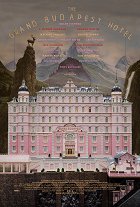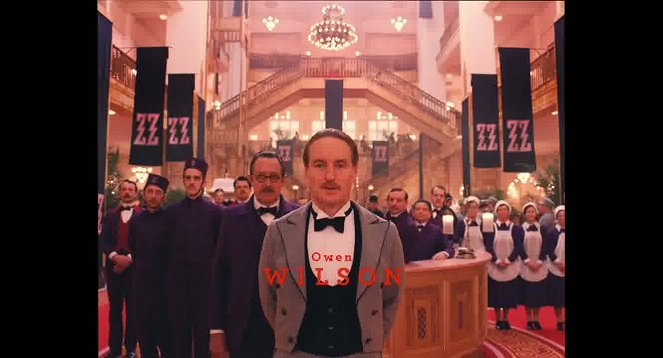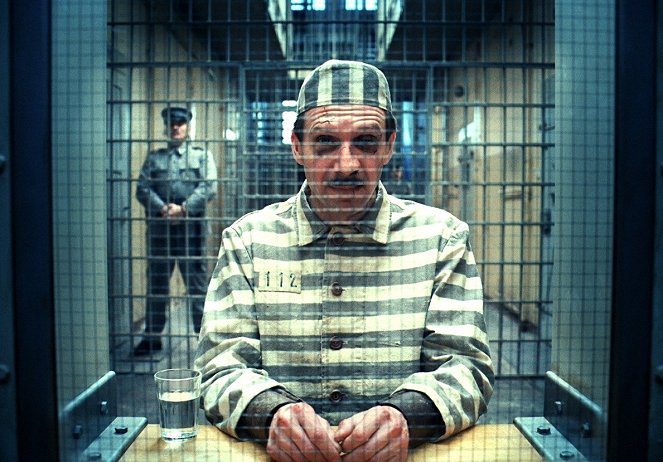Directed by:
Wes AndersonScreenplay:
Wes AndersonCinematography:
Robert D. YeomanComposer:
Alexandre DesplatCast:
Ralph Fiennes, F. Murray Abraham, Mathieu Amalric, Adrien Brody, Willem Dafoe, Jeff Goldblum, Harvey Keitel, Jude Law, Bill Murray, Edward Norton (more)VOD (3)
Plots(1)
Wes Anderson brings his dry wit and visual inventiveness to this exquisite caper set amid the old-world splendor of Europe between the World Wars. At the opulent Grand Budapest Hotel, the concierge M. Gustave (Ralph Fiennes) and his young protégé Zero (Tony Revolori) forge a steadfast bond as they are swept up in a scheme involving the theft of a priceless Renaissance painting and the battle for an enormous family fortune—while around them, political upheaval consumes the continent. Meticulously designed, The Grand Budapest Hotel is a breathless picaresque and a poignant paean to friendship and the grandeur of a vanished world, performed with panache by an all-star ensemble that includes F. Murray Abraham, Adrien Brody, Saoirse Ronan, Willem Dafoe, Jude Law, Harvey Keitel, Jeff Goldblum, Mathieu Amalric, Tilda Swinton, and Bill Murray. (Criterion)
(more)Videos (15)
Reviews (19)
The cardboard world of Anderson's childish fantasy hooked up with a script someone dug up in Alfred Hitchcock’s forgotten archives, and I’ve definitively succumbed to this fool whose films I both liked and loathed at the same time. While it doesn't really have human emotions, but rather forcefully screwed-on tremors based on the situation the characters are in at the time, this thriller ride is as tense as anything else. The elevator scene at the end and the subsequent shootout in the gallery are both scenes that few people can really film today. PS: Most directorial aces would sell their souls for this casting.
()
Wes Anderson is a director with his own world. I’ve seen his world a few times before and I never liked it as much as I did in this movie. It may have been caused by the atmosphere of the Second World War, but I rather think it was the absurdity as such, that the director toys with in this war. It’s a bit like Tarantino’s Inglorious Basterds, only in the far more distinctive and positive style of the director, which I’ll probably never forget. And I have to admit, after watching this movie, I immediately have a reason to watch all his other movies I’ve seen before, but also the ones I haven’t seen yet. That’s how much The Grand Budapest Hotel affected me.
()
This is my first encounter with the work of the cult director Wes Anderson. I must say that it was a pleasant meeting that invited me to explore more films from his workshop. The success of the film does not lie in the plot - if the backbone of the story were to carry a vertebrate, that poor thing would practically not move from its place. I don't know about elsewhere, but in this case, Anderson's strength lies in caricature and grotesque exaggeration. The director conceived his search for the source of the hotel owner's wealth as a fantasy retelling of the modern history of Central Europe from the prelude to World War I and the rise of fascism to the social changes resulting from the political movement to the left. The charm of The Grand Budapest Hotel also comes from the casting of episodic roles by famous faces from the world of acting and their use in atypical positions. For example, Tilda Swinton plays a decades-older character from a withered and shamelessly wealthy family clan, which seeks her life and property. The Grand Budapest Hotel is a series of comic characters, amusing gags, chases, and twisty situations, cleverly written and performed with an unmistakable charm. Overall impression: 80%.
()
It all relies completely and solely on Wes Anderson’s direction. He manages to sell both special stabilization and an absurd story, but without him it’s “just" a tried and tested mishmash of (sometimes more, sometimes less) funny scenes. It’s not a boring movie, it’s playful, lively and has excellent actors. The problem is that we find innovation only in the trimmings, but not on the inside. Movie magic hiding yet another empty ode to an incredible life that just isn’t that entertaining anymore.
()
A lot of figures, no characters. A lot of narrators, no narrative. A lot of movement, no direction. Anderson again balances on the edge of a chasm of gratuitous horsing around in grand style. The design of the individual settings and periods (red and purple art deco in the 1920s, grey and pink during the Nazi era, orange and yellow in the 1960s), the geometric perfection in the mise-en-scene and the seemingly hand-crafted tricks make up an unbelievably entertaining blend of the poetics of classic slapstick and Méliès’s more spectacular films. (A detail for connoisseurs is the fact that each era was shot in a different aspect ratio: 1.85:1 for the present, 2.35:1 for the 1960s, academic format for the 1930s). However, I don’t agree that Anderson has matured and has given us a sad and melancholic film in colourful wrapping. Any attempts at seriousness fail, whether in relation to the characters or to the theme of war and times long past. The war context, the hint of nostalgia and the multiple rewritings of Central European history serve mainly as an excuse for colourful fooling around. Zweig is present more or less thanks only to the nesting-doll structure of the narrative, the infrequent consideration of which over the course of the film raises a question that I had to ask myself repeatedly, despite my desire to let myself be freely carried away by Anderson’s imagination – “What is this for?” According to the principle of “why do something the easy way when you can do it the hard way”, the film contains a full range of prototypical situations that we would find in their unaffected form, which would better serve the story, in classic escape and caper movies. The acknowledged inspiration taken from Hitchcock’s thrillers (a persecuted innocent) and Lubitsch’s screwball comedies from obscure European countries (particularly Ralph Fiennes’s character and his attitude toward women, but not the “cleverness” of the dialogue, whose humour rather often consists in a wager on a sure thing in the form of well-timed vulgarity) is purely superficial. The intentional contrivance of the situations finds a response only in the actions of the characters, who respect strict rules and walk in diagonal lines, thus elegantly closing the circle, as the contrived world gives meaning to its lifelessness through artificial figures. I admire the precision with which Anderson builds his worlds and I enjoy the flawless comic timing of all of the actors, but I simply cannot find any deeper meaning, greater depth or narrative imaginativeness in Grandhotel Budapest. 75%
()



Ads